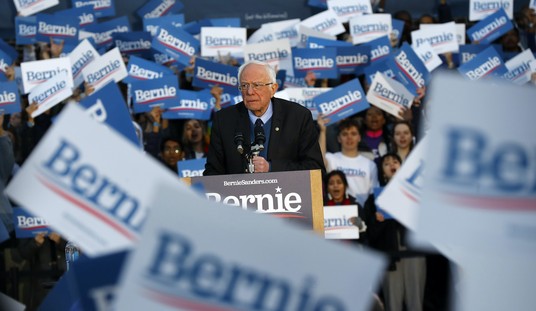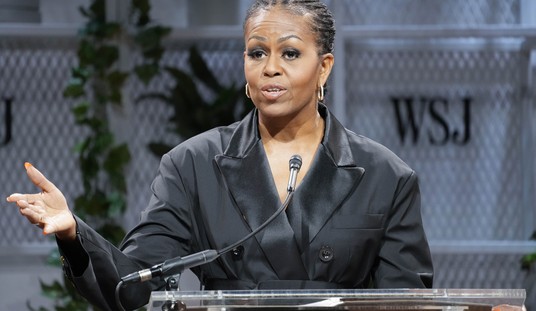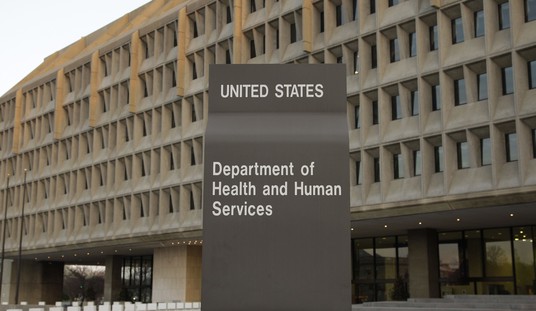Have the people of Venezuela finally tired of Chavismo now that Hugo Chavez is no longer around to front it? Frustrated by the collapse of their economy, Venezuelans have poured into the streets of Caracas to protest — and an armed gang of motorcycle vigilantes shot up the crowd:
Armed vigilantes on motorcycles attacked anti-government demonstrators in Venezuela on Wednesday, setting off a stampede by firing into crowds as the biggest protest against President Nicolas Maduro’s year-old administration turned violent. Three people were killed.
Chaos erupted in downtown Caracas when the gang roared up and began shooting at more than 100 protesters who had been sparring with security forces at the tail end of heated but otherwise peaceful protests organized by hard-line members of the opposition. Most of the roughly 10,000 participants in the demonstrations had already gone home.
As people fled in panic, one demonstrator fell to the ground with a bullet wound in his head. Onlookers screamed “assassins” as they rushed the 24-year-old marketing student to a police vehicle. He was later identified by family members as Bassil Da Costa.
Also killed was the leader of a pro-government 23rd of January collective, as militant supporters of Venezuela’s socialist administration call themselves. National Assembly President Diosdado Cabello said the “revolutionary” known by his nickname Juancho was “vilely assassinated by the fascists” but he didn’t provide details.
The troubles moved eastward to the wealthier neighborhood of Chacao after nightfall, leaving another unidentified demonstrator dead from a bullet wound, district Mayor Ramon Muchacho said via Twitter. Calm returned as midnight approached, leaving smoldering trash cans strewn along several blocks where demonstrators threw rocks at government buildings.
There hasn’t been much coverage of these events by the US media of these protests, or of Venezuela’s economic collapse. CNN’s coverage of the shootings in Caracas notes that Maduro alleged that the protests were a “coup,” but otherwise mention little about the economic conditions in the country. Neither does the Associated Press report at the Post, other than to note the “inflation-plagued economy [and] worsening crime,” which makes it sound like the Jimmy Carter administration.
The truth is much worse than that, as Stephanie Nolen reports for The Globe and Mail in Canada:
In the serene private clubs of Caracas, there is no milk, and the hiss of the cappuccino machine has fallen silent. In the slums, the lights go out every few days, or the water stops running. In the grocery stores, both state-run shops and expensive delicatessens, customers barter information: I saw soap here, that store has rice today. The oil engineers have immigrated to Calgary, the soap opera stars fled to Mexico and Colombia. And in the beauty parlours of this nation obsessed with elaborate grooming, women both rich and poor have cut back to just one blow-dry or manicure each week.
Venezuela, the world’s fifth-largest oil producer, is a leading candidate for next collapsed state. …
Inflation is running at over 50 per cent, a raging black market buys dollars at more than 10 times the official rate, domestic industry has all but shut down; there are critical shortages of many consumer staples, including corn flour for arepas, the national breakfast. TV stations – now all state-controlled – are full of ads that alternately denounce capitalism or show square-shouldered actors talking about how they don’t hoard and buy only what they need. Billboards boast of how socialist Venezuela has never been stronger; yet almost no one has toilet paper in their bathrooms.
The apocalypse hasn’t come yet. “The crash never comes because Venezuela has an insurance other countries don’t have – one of the largest oil reserves in the world,” said Jorge Roig, president of the Federation of Chambers of Commerce. Venezuela’s economic indicators defy logic, he said, but the international thirst for oil has postponed the day of reckoning.
Except that, as Nolen reported earlier in the week, the oil industry in Venezuela is slowly collapsing, too:
When Venezuelan oil minister Rafael Ramirez recently announced an ambitious new target of six million barrels per day by 2019, the state-run press heralded the imminent expansion of an industry vital to the country’s health.
But people here heard the news and rolled their eyes. After all, the last five-year plan had a goal of 5.8 million barrels a day by 2012, only to finish last year at just 2.9 million. That’s down from 3.2 million back in 2005.
In fact, the last time Venezuela’s oil industry productivity per employee was this low was 1940.
There is open speculation about how long Petroleos de Venezuela SA (PDVSA) can carry on, even at its current depressed level. There is little faith in the official data put out by the firm – whose senior managers are now mostly political appointees. And rumours are circulating about accidents, breakdowns and critical shortages of even the most basic supplies needed to run the business.
Before Chavez, Venezuela was a successful petro-state with a significant middle class and stable economics. Then Chavez created a command economy, expropriated private property, and ruled by whim for most of his term as president/dictator. He managed that through brute force and a cult of personality, but his successor only has brute force to use.
This could get ugly quickly. Perhaps the American media might get interested in this story sometime soon, enough to report not just when the bullets fly, but why Venezuelans are marching in the streets and their government is at least tacitly allowing violence to drive them off. At least Canadians know what’s going on in Venezuela.
Update: Fausta Wertz sees a little more interest in the American media today, but not much. She’s not optimistic about Venezuela’s future, either:
An arrest warrant has been issued for opposition leader Leopoldo López.
Unless a sizable fraction of the military actively backs the opposition, I expect a new era of repression in Venezuela, so I’m not optimistic.
Keep Fausta on your reading list for her focus on Latin America, too.








Join the conversation as a VIP Member